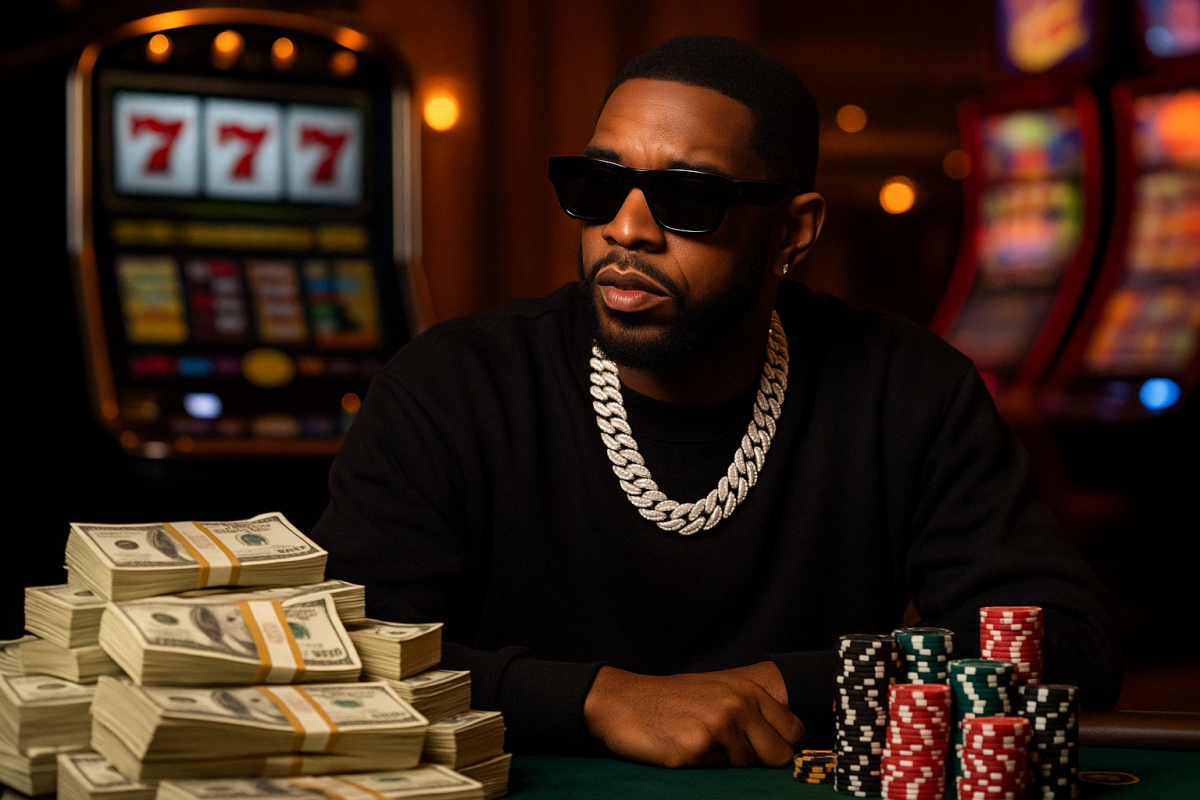Hip-hop fans and artists will tell you it’s a mindset more than a genre. And from its genesis in the Bronx to its global takeover, hip-hop was always about taking chances. Whether hustling on the streets, launching a business with only dreams as capital, or challenging authority through lyrics, risk is the lifeblood of hip-hop culture.
Risk and Survival as a Business Model
Hip-hop was born in the 1970s in the South Bronx, a place with few opportunities for young black and Latino people. Survival in harsh circumstances demanded creativity. Without access to traditional paths in the music industry, New York artists turned to mics, turntables, and spray cans for visual representation. They built a “scene” that was completely unique at the time. That DIY spirit wasn’t just about art; it was about betting on yourself and understanding your audience.
The ethos of catering to one’s own community still runs deep. Artists like Nipsey Hussle have invested in the places where he grew up, and Jay-Z famously said, “I’m not a businessman, I’m a business, man.” Hip-hop artists have long embraced entrepreneurship as a form of resistance and empowerment—one that naturally resonates with an audience from the same place.
Regional Variations on a Shared Hustle
Hip-hop’s relationship with risk isn’t one-size-fits-all. Different regions have shaped the sound—and the stakes—in their own ways.
New York gave us the rough realism of Nas and Biggie, whose lyrics painted harsh pictures of street life and survival.
Atlanta birthed trap music, a genre rooted in the high-stakes world of street economics. Artists like T.I. and Gucci Mane became globally recognized artists through candid, hustler stories that glorify the wealth and pitfalls of crime.
Houston introduced the hypnotic chopped-and-screwed sound, pioneered by DJ Screw. Acts like Geto Boys used music to reflect the emotional and psychological weight of street life in the South, offering introspective takes on trauma, identity, and survival.
Virginia Beach brought tales of ambition and complexities of street hustling to light through acts like Clipse. It also launched more mainstream hip-hop acts like Missy Elliott and Pharrell. The mix of talent from Virginia challenged perceptions of the region’s cultural identity.
Despite their differences, these regions share a culture that respects the hustle and risk that can skyrocket anyone to fame and fortune, no matter where they came up.
Hustle Mentality Beyond the Music
Risk-taking in hip-hop isn’t confined to lyrics or beats. The mindset permeates lifestyles, fashion, and how fans seek entertainment.
Consider the world of online gaming and social media, for instance. The same love of risk is evident in what draws people outside the music. Whether choosing a fast withdrawal casino where the payoff matches hustle mentality, streaming high-stakes games on Twitch, or curating bold personal brands online that fuel conflict and rivalries, hip-hop’s risk culture overlaps digital lives.
This crossover isn’t accidental. Hip-hop’s influence on gaming culture is profound, with many artists investing in esports teams or collaborating with game developers. The synergy between the two worlds underscores a shared appreciation for strategy, competition, and, of course, high stakes.
Numbers Don’t Lie: The Business of Risk
Hip-hop’s relationship with risk was never just about lyrical flexes—it’s deeply tied to real-world business moves that have redefined the American entrepreneurial landscape. From the streets to the boardroom, hip-hop artists have increasingly proven that calculated risk backed by grit can lead to generational wealth and cultural power.
At a glance, the hip-hop industry is now a multibillion-dollar machine. In 2023 alone, hip-hop helped drive the U.S. music industry to record revenues of $17.1 billion, with a significant share due to rap streaming, branding, touring, and business ventures (RIAA, 2023). But that number doesn’t fully capture the wider economic ripple effect of hip-hop’s hustle mindset.
Many of today’s most influential rappers didn’t stop at music—they built empires. Take Jay-Z, who went from selling CDs out of a car to becoming hip-hop’s first billionaire through investments in liquor, art, real estate, and tech. His story isn’t unique anymore. Rihanna (via Fenty Beauty), Dr. Dre (via Beats by Dre), and Tyler, the Creator (via fashion and media ventures) have all leveraged their cultural clout to build brands that extend far beyond the studio.
Risk is baked into each of these moves. These artists didn’t wait for corporate backing or traditional validation—they invested their own money, went against the grain, and often faced early skepticism. But in doing so, they gained full control over their narratives and profits. Ownership became the new currency of hip-hop.
Smaller-scale entrepreneurs in the hip-hop world follow the same playbook. Today, independent artists rely on social media, NFTs, crowdfunding platforms, and direct-to-fan marketing—each route with its own risks and rewards. Unlike the perceived safety net of major labels, self-promotion means watching your own back and adapting to a constantly shifting market. It’s high-risk, but for some, it means long-term gain.
This same spirit has inspired a wave of fans to approach their own lives with boldness. Whether launching a brand, reselling sneakers, or flipping vintage tees, young entrepreneurs often credit the hip-hop mindset as their blueprint. What used to be dismissed as hood culture is now a blueprint for innovation, economic freedom, and cultural influence.
This evolution reflects what risk in hip-hop has always been about: not recklessness, but vision. It’s knowing your value and putting everything on the line to prove it.
Risk as a Cultural Cornerstone
At its core, hip-hop is about betting on yourself. It’s about turning obstacles into opportunities and embracing challenges with confidence. This theme has influenced nearly every aspect of modern culture in America.
In a world that often favors the safe and the predictable, hip-hop stands as a testament to the rewards on the flipside of risk.
So, whether you’re launching a startup, crafting your personal brand, or just dropping a mixtape, in hip-hop, the hustle and risk are worth it.
